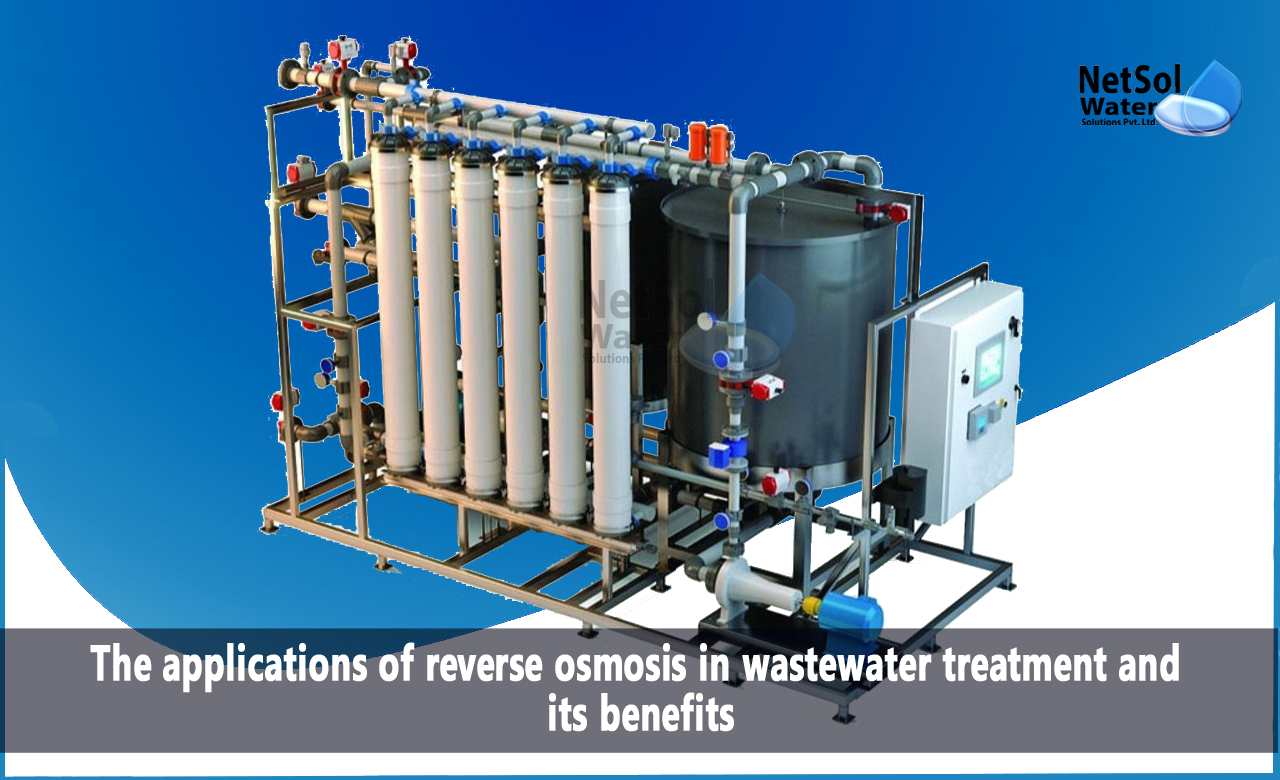What are the applications of reverse osmosis in wastewater treatment?
Wastewater treatment plays a crucial role in maintaining environmental sustainability and protecting public health. Reverse osmosis (RO) has emerged as an effective approach in wastewater treatment, offering a sustainable solution for the purification and reuse of wastewater. In this blog, we will explore the applications of reverse osmosis in wastewater treatment, its benefits, considerations for implementation, and the challenges associated with its use.
Understanding Reverse Osmosis:
Reverse osmosis is a membrane-based water treatment process that utilizes semi-permeable membranes to separate dissolved impurities and contaminants from water. In wastewater treatment, RO systems are designed to selectively remove pollutants, providing purified water as a result.
a. The Basics of Reverse Osmosis: Reverse osmosis works by applying pressure to the wastewater, forcing it through the semi-permeable membrane. The membrane allows water molecules to pass through while rejecting dissolved salts, organic compounds, and other contaminants.
b. Membrane Technology in Wastewater Treatment: The selection of appropriate membranes is crucial in wastewater treatment using reverse osmosis. Different membrane materials and configurations are chosen based on the specific wastewater composition and treatment objectives.
c. Key Components of Reverse Osmosis Systems: RO systems consist of various components, including pre-treatment units, pumps, membranes, pressure vessels, and monitoring/control systems. Each component plays a vital role in the overall performance of the system.
Applications in Wastewater Treatment:
Reverse osmosis finds several applications in wastewater treatment:
a. Purification of Industrial Wastewater: RO systems effectively remove contaminants from industrial wastewater streams, allowing for the safe discharge or reuse of the treated water.
b. Reuse of Treated Wastewater: Reverse osmosis enables the purification of wastewater for various non-potable applications, such as irrigation, industrial processes, and groundwater recharge.
c. Recovery of Valuable Resources: RO systems can facilitate resource recovery by concentrating valuable substances present in wastewater, such as minerals, nutrients, and organic compounds, for further utilization.
Benefits of Reverse Osmosis in Wastewater Treatment:
a. Efficient Removal of Contaminants: Reverse osmosis systems offer high removal efficiency for a wide range of contaminants, including dissolved salts, organic compounds, heavy metals, and pathogens.
b. Resource Recovery and Reuse: RO enables the recovery and reuse of treated wastewater, reducing the reliance on freshwater sources and minimizing the environmental impact of wastewater discharge.
c. Reduction in Environmental Impact: By effectively removing pollutants, reverse osmosis contributes to the reduction of water pollution, protecting ecosystems and preserving water resources.
d. Compliance with Water Quality Standards: RO-treated wastewater meets stringent water quality standards, ensuring the safety of the environment and public health.
Considerations for Implementing Reverse Osmosis Systems:
a. Pre-Treatment Requirements: Proper pre-treatment of wastewater is crucial to prevent membrane fouling and maximize the efficiency and lifespan of the reverse osmosis system.
b. System Design and Sizing: A well-designed RO system should consider the specific wastewater characteristics, treatment objectives, and anticipated water demand to ensure optimal performance and cost-effectiveness.
c. Energy Consumption and Sustainability: Efforts should be made to optimize energy consumption in reverse osmosis systems by employing energy recovery devices and exploring renewable energy sources to enhance sustainability.
d. Monitoring and Maintenance: Regular monitoring, maintenance, and cleaning of the RO system are essential to ensure consistent performance, prevent fouling, and extend the life of the membranes.
Challenges and Solutions:
a. Fouling and Scaling: Membrane fouling and scaling can occur in RO systems, affecting performance. Effective pre-treatment, proper cleaning protocols, and membrane maintenance strategies can help mitigate these challenges.
b. Concentrate Disposal: The disposal of the concentrate stream generated by reverse osmosis systems requires careful consideration. Strategies such as brine minimization, brine treatment, and resource recovery can help address this issue.
c. Cost and Affordability: The initial investment and operational costs of reverse osmosis systems can be a challenge for some wastewater treatment facilities. However, advancements in technology and economies of scale are making RO more affordable and accessible.
d. Public Perception and Acceptance: Public education and awareness about the benefits of using reverse osmosis in wastewater treatment are crucial to gain acceptance and overcome any negative perceptions.
Conclusion
Reverse osmosis provides a sustainable solution for wastewater treatment, offering efficient removal of contaminants, resource recovery, and compliance with water quality standards. By considering key factors such as pre-treatment requirements, system design, energy consumption, and maintenance, reverse osmosis systems can be effectively implemented in wastewater treatment facilities. Despite challenges related to fouling, concentrate disposal, cost, and public perception, the benefits of reverse osmosis in wastewater treatment contribute to environmental sustainability, water conservation, and the promotion of a circular economy.
Netsol Water is Greater Noida-based leading water & wastewater treatment plant manufacturer. We are industry's most demanding company based on client review and work quality. We are known as best commercial RO plant manufacturers, industrial RO plant manufacturer, sewage treatment plant manufacturer, Water Softener Plant Manufacturers and effluent treatment plant manufacturers. Apart from this 24x7 customer support is our USP. Call on +91-9650608473, or write us at enquiry@netsolwater.com for any support, inquiry or product-purchase related query.



